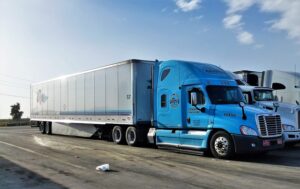 Understanding the Basics of Motor Truck Cargo Insurance for Trucking Businesses
Understanding the Basics of Motor Truck Cargo Insurance for Trucking Businesses
As the backbone of the transportation industry, motor trucks play a crucial role in the movement of goods and services across the country. However, with great responsibility comes great risk, and trucking businesses must be prepared for the unexpected. One of the most essential elements of risk management in the trucking industry is cargo insurance. With the increasing demand for transportation services and the rising costs of goods, it is crucial for trucking businesses to understand the basics of motor truck cargo insurance. This comprehensive coverage protects against potential financial losses caused by damaged or lost cargo during transit. In this article, we will delve into the fundamentals of motor truck cargo insurance, including what it covers, the different types of coverage available, and how it can benefit trucking businesses. By gaining a thorough understanding of this essential aspect of risk management, trucking businesses can ensure the smooth and secure delivery of goods while protecting their financial well-being.
Protect your cargo and business.
In today’s fast-paced and competitive business environment, safeguarding your cargo and protecting your business assets is of utmost importance. As a trucking business, the transportation of goods is at the core of your operations, and any mishap or loss can have significant financial repercussions. That’s where comprehensive motor truck cargo insurance comes into play. This essential type of coverage provides you with the peace of mind knowing that your cargo is protected against a range of risks, including theft, damage, or loss during transit. By investing in motor truck cargo insurance, you not only mitigate the financial impact of potential incidents but also demonstrate your commitment to providing reliable and secure transportation services to your clients.
Coverage options for trucking companies.
When it comes to coverage options for trucking companies, it’s important to understand that not all policies are created equal. There are several key coverage options available that cater specifically to the unique needs and risks faced by trucking businesses. One such option is liability insurance, which provides protection in the event of bodily injury or property damage caused by your trucks. Another important coverage to consider is physical damage insurance, which covers the cost of repairs or replacement of your vehicles in case of accidents or other covered incidents. Additionally, cargo insurance is crucial for protecting the goods you transport, ensuring that you are compensated in the event of loss or damage. By carefully evaluating your business’s specific requirements and working with an experienced insurance provider, you can tailor a coverage plan that offers the right level of protection for your trucking operations.
Importance of understanding policy terms.
Understanding the policy terms of your motor truck cargo insurance is of utmost importance for trucking businesses. It allows you to have a comprehensive understanding of the coverage provided and ensures that you are adequately protected in case of any unfortunate incidents. Familiarizing yourself with the terminology used in the policy, such as deductibles, limits, exclusions, and endorsements, will enable you to make informed decisions about your insurance needs. Moreover, having a clear understanding of the policy terms will assist you in effectively communicating with your insurance provider and addressing any concerns or questions that may arise. By taking the time to comprehend the policy terms, you can avoid potential misunderstandings, disputes, and financial losses, thereby safeguarding the long-term success and stability of your trucking business.
Factors that affect insurance rates.
There are various factors that can significantly impact insurance rates for motor truck cargo coverage in the trucking industry. One key factor is the type and value of the cargo being transported. High-value or specialized cargo may require higher coverage limits, resulting in increased premiums. Another factor is the driving record and experience of the trucking business and its drivers. Companies with a history of accidents or violations may face higher insurance costs as they are considered higher risk. Additionally, the geographical area of operation can affect rates, with higher populated or congested regions generally resulting in higher premiums. Other factors include the size and condition of the fleet, security measures in place, and the overall claims history of the business. Understanding these factors and working to mitigate any risks can help trucking businesses secure more favorable insurance rates.
Expert advice for choosing coverage.
When it comes to choosing the right coverage for your trucking business, seeking expert advice can be invaluable. Insurance professionals who specialize in motor truck cargo coverage have the knowledge and experience to guide you through the intricacies of selecting the appropriate policy. They can help assess your specific needs, considering factors such as the type of cargo you transport, the value of your assets, and the risks associated with your operations. Additionally, these experts can provide insights into industry trends, regulatory requirements, and coverage options tailored to your business. By consulting with professionals, you can make informed decisions that align with your unique circumstances, ensuring you have the right coverage to protect your business and financial interests.
In conclusion, motor truck cargo insurance is an essential component for any trucking business to protect against potential losses and damages during transportation. By understanding the basics of this insurance coverage, trucking businesses can make informed decisions when selecting policies and ensure the safety of their cargo. While it may seem like an additional expense, the peace of mind and financial protection that motor truck cargo insurance provides is invaluable in the unpredictable world of trucking. It is always recommended to consult with a professional insurance agent to determine the best coverage options for your specific business needs.
